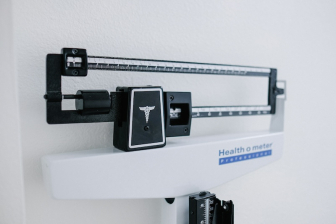Nivolumab Dominates the News
Last updated: 01 November 2019
You can legally access new medicines, even if they are not approved in your country.
Learn howPromising Results from Multiple Studies

When former US president Jimmy Carter announced that he had been diagnosed with melanoma last year, a huge amount of attention was brought to nivolumab, the immunotherapy drugs he was being treated with. The success of President Carter’s treatment was heartening for patients, doctors, and scientists across the globe. This year, nivolumab continues to make headlines as its potential to treat a broader range of cancers is uncovered.
This month alone, the results of four different studies have shown that nivolumab shows promise in treating a variety of cancers.
On April 19th, the UK’s Telegraph featured a story headlined, “Drug Doubles Chance of Surviving Head and Neck Cancer for a Year, Trial Shows”1. The article explains that nivolumab works by “removing the switch so that immune cells can spot cancer cells and clear them out of the body. It has already been shown to work for skin and breast cancers”.
The article goes on the describe a phase III trial led by Professor Kevin Harrington of the Institute of Cancer Research London that was so successful it was stopped early so that all patients could be moved onto the immunotherapeutic medication. Read the whole article here.
Science Daily reported on April 18th that nivolumab shows promise when treating a rare malignancy known as squamous cell carcinoma of the anal canal (SCCA) [2]. Metastatic SCCA is a cancer often connected with human papillomavirus (HPV) infection and for which there has been no standard care established. The phase II study was led by researchers at The University of Texas MD Anderson Cancer Center's Human Papillomavirus-Related (HPV) Cancers Moon Shot Program, and final clinical results will be reported at the American Society of Clinical Oncology’s 2016 annual meeting.
The post continues with a promising quote from Dr. Van Morris, M.D., assistant professor of Gastrointestinal Medical Oncology; "This study demonstrated responses in five of 18 patients treated at MD Anderson, and many of the patients had significant reductions in their tumour size." Read the full article here. An interview with Dr. Van Morris, M.D., where he discusses the results, can be read here3.
On April 6th, Medscape reported on the news that The European Commission has approved new indications for nivolumab, expanding its use in the treatment of non-small-cell lung cancer (NSCLC) and adding the indication of renal cell carcinoma4. The drug had hitherto been approved in Europe for use in patients with metastatic squamous NSCLC. Expanding the indication to non-squamous NSCLC - which accounts for 85% of all lung cancer cases - will see the drug be used by a larger population.

The article states that the drug “is the only PD-1 inhibitor that has been approved for a broad range of patients with previously treated metastatic NSCLC, regardless of PD-L1 expression, and nivolumab is the only approved PD-1 inhibitor to demonstrate a better overall survival rate than docetaxel in previously treated metastatic NSCLC, the manufacturer pointed out in a press release.”
The approval expansion was based on the results of a phase III trial that compared nivolumab with docetaxel in patients with metastatic non-squamous NSCLC. The article goes on to explain that “Nivolumab demonstrated better overall survival than docetaxel, with a 27% reduction in the risk for death (hazard ratio [HR], 0.73; P = .0015). The 1-year survival rate was 51% for nivolumab and 39% for docetaxel.”
Nivolumab has also received approval from the European Commission for the treatment of RCC in adults who had undergone previous therapy, “making it the first and only PD-1 inhibitor with this indication.” Read the whole article here.
An April 18th article in Science Daily headlined Longest Follow-Up of Survival After Treatment With Nivolumab explained that 34 percent of the advanced melanoma patients treated with the drug alone in a previous phase I trial were still alive five years later5. This is the type of cancer, as it happens, that Jimmy Carter combatted last year. Read the whole article here.
You can find out more about nivolumab here.
DISCLAIMER: Nothing can replace the care of your clinician or doctor. Please do not make changes to your treatment or schedules without first consulting your healthcare providers. This article is not intended to diagnose or treat illness.
References
2.https://www.sciencedaily.com/releases/2016/04/160418092708.htm
3.http://medicalresearch.com/author-interviews/immunotherapy-drug-nivolumab-may-help-some-aggressive-hpv-induced-anal-cancers/23515/
4.http://www.medscape.com/viewarticle/861578
5.https://www.sciencedaily.com/releases/2016/04/160418092431.htm
© everyone.org




